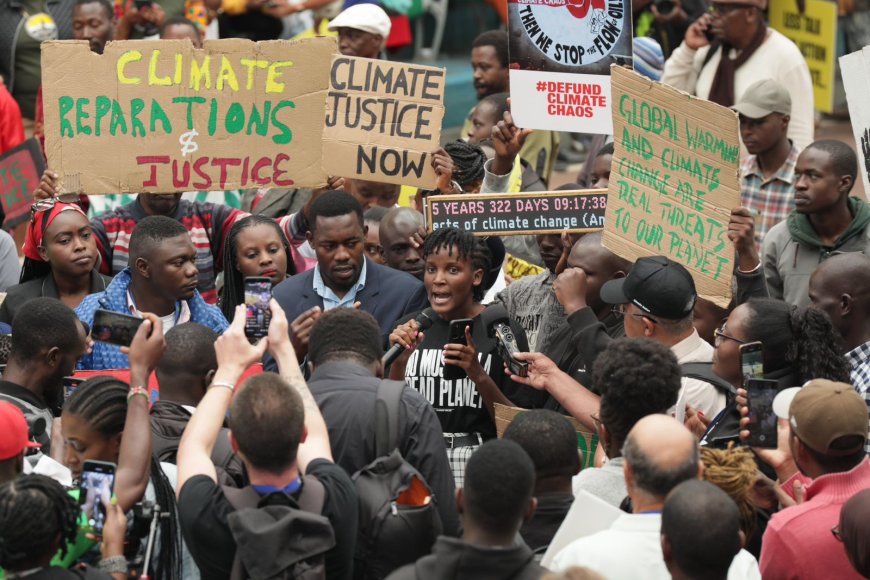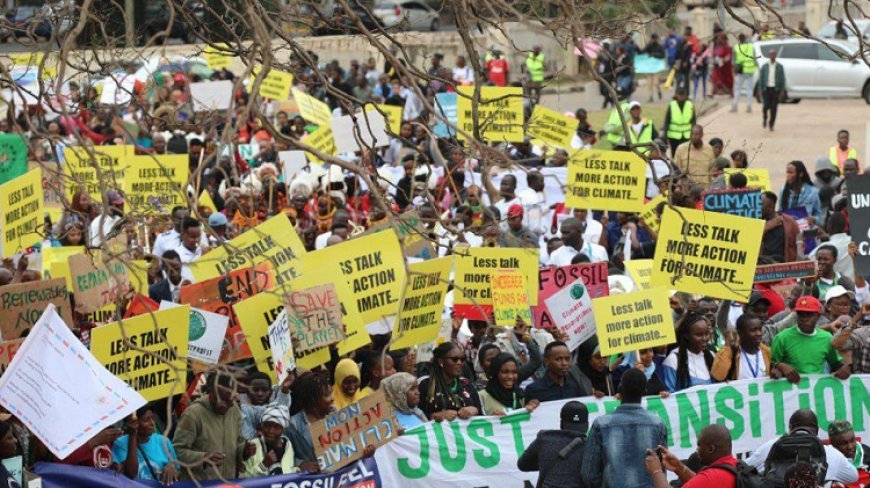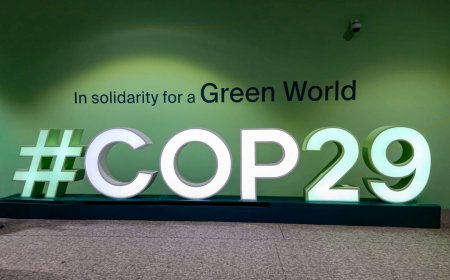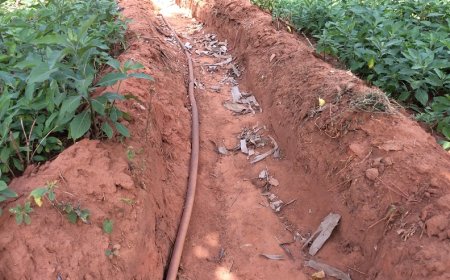Summary
- Young generations in Africa grapple with the impacts of climate change despite making minimal contributions to global emissions.
- Youth have been at the forefront of climate action to guarantee their future, from mass protests to policy advocacy.
- The personal accounts of Nisreen Elsaim and Fatima Zahra Yusu illustrate that African youths are motivated by existential threats to their livelihoods.
- Challenges to youth activism include financial constraints, unemployment, gender disparities, political repression, and the general reluctance of governments to respond to their recommendations through concrete action.
- Despite these obstacles, youth-led climate action has successfully raised public awareness and influenced policy changes, emphasizing the necessity for governments to deeply involve young people in climate decision-making.
Introduction
Climate change is the precarious context in which younger generations around the world must plan their futures. This is particularly true for the African youth. Youth is a fluid and transitional age category with no universally agreed-upon age range, however, the term generally encompasses those between 15 and 25 years old. Despite only having contributed to approximately 4% of global emissions,1 Africa is disproportionately affected by climate change. Young people will suffer an estimated 80% of health risks and threats to life attributed to climate disruption as they are more susceptible to the effects of extreme heat, drought, natural disasters, malnutrition, and disease.2 Africa is the youngest continent in the world, with 70% of its population under the age of 30.3 Youth involvement in climate change should come as no surprise.
In the past few years, the global youth has led the charge against climate change through mass protests that demand action from policymakers. Greta Thunberg, a 20-year-old Swedish environmental activist, has become a household name. While African youths may not be as visible in the international and local media, they have been actively advocating for climate change adaptation and mitigation measures through protest-oriented action and in policy spaces. Current youth visibility in climate action has come from years of hard work to reach high-level climate change policymaking. COP28 provides an opportunity for youth activists to be heard, have their demands met by those in power, and advocate for an equitable and climate-resilient future. This year's COP presidency is making a concerted effort to include climate-vulnerable youth in its dialogue and global policymaking.4 What is yet to be seen, however, is whether these gestures towards youth in COP28 are sincere or merely tokenistic.
Overview of Youth Climate Action in Africa
The Gen Z generation has demonstrated an active social conscience on many social, political, and economic issues. Their involvement in climate change activism is largely motivated by existential threats to their livelihoods. 60% of Africa’s population is under the age of 25, yet the median age of political leaders in Africa is 62.5 With limited access to traditional political leadership positions and access to positions of power, activism is where African youth are able to exact change.
One of the most notable events showcasing the united voice of Africa's youth in the face of urgent climate change issues was the African Climate Summit held in Nairobi in September 2023. The summit featured a powerful display of passion, commitment, and resilience from young African activists. Thousands of youths representing various African nations marched through the streets of Nairobi displaying placards, singing, and chanting slogans with a clear demand: urgent and effective climate action. The protests were not just about the local context but served to send a strong message to global leaders in preparation for the COP28 conference. The protests highlighted Africa's unique vulnerabilities to climate change and emphasized that the continent is disproportionally on the receiving end of the dire impacts of global emissions, despite contributing minimally to the crisis.

Image Source: Patience Makheti 2023
Two youth activists were interviewed for this short analysis: Nisreen Elsaim from Sudan and Fatima Zahra Yusuf from Nigeria. Their experiences demonstrate the realities of youth climate action in diverse regional, socio-economic, and political contexts. “Sudan is very vulnerable to climate change and people know it and feel it [...] they see that their food is decreasing. Their income is, of course, rapidly decreasing, and so is access to water,”6 states Elsaim about her fellow youth activists' motivations. On the other side of the continent, Yusuf talks about a time she suffered from heatstroke that motivated her climate activism: “In 2018, there was a very severe heat wave, where [...] I had to go back to the class to rest only to wake up in the hospital. Apparently I had fainted and was having a severe convulsion. I would say that personal experience is one of the major things that drives me to fight and advocate for climate change. I don't want anyone else to go through that.”7
No country on the African continent is immune to the effects of climate change, thus all countries have experienced some form of climate action. Nigeria is the largest economy in Africa and two-thirds of its state revenue comes from oil.8 Nigeria is also the second largest carbon dioxide emitter in Sub-Saharan Africa after South Africa.9 With an economy dependent on fossil fuels, climate change has been conspicuously absent from Nigeria’s party politics in recent years.10 While there has been considerable progress in the form of methane emission guidelines and an energy transition plan, its absence from societal political debate highlights climate change’s low priority in Nigerian politics. Climate change has also fueled and perpetuated the effects of conflict in Sudan, as the population faces increasing droughts, depletion of water sources, and desertification.11 For Sudan, this year has seen months of conflict between the Sudanese Armed Forces (SAF) and the paramilitary Rapid Support Forces (RSF).12 Climate action in this context goes hand in hand with bids for security and peace, which is quite different to Nigeria.
Success Stories
Youth climate action usually finds success in raising public awareness. Yusuf notes that her activism’s main objective is fighting the climate change knowledge gap in her community.13 The majority of Nigerians are unfamiliar with the concept of climate change,14 but many are aware of their changing environments and are already having to physically adapt to it. Protests and other forms of climate change action, such as tree planting campaigns, serve to raise awareness in local communities. Social media also serves as an effective tool for bringing attention to environmentalism. Elsaim recalled that there were only four fellow climate change activists in Sudan in 2012, and now there are over a thousand.15 These efforts have the combined effect of spreading awareness by amplifying public concerns and applying pressure to policymakers.16
Challenges and Obstacles Faced by Youth Activists
Dedication to climate change action does not come without obstacles and risks. Organizational limitations and financial constraints significantly limit the scope of youth environmental activism. Climate action and participation in events like the African Climate Summit or COP28 require funding that many youths do not have access to. The youth are disproportionately affected by unemployment, and those who can start their career are often met with unpaid internships or low-paying entry-level positions. The gender pay gap also continues to disenfranchise women, who typically need to fund child-care expenses simultaneously. Youth organizations in African countries have also struggled to access funds. Although activism can bring about strong dialogue, the implementation of concrete outcomes is often insufficient. Elsaim described this when asked about her involvement in major climate change events: “I don't see any events as major anymore because what determines if an event is major or not is the outcome of it and the implementation of that commitment. So now, I think of the most important events or conferences as the most disappointing ones, because none of the previous events I attended delivered anything remarkable or important. Some of them actually did the opposite, by massively failing to deliver anything.”17 Governments are often unwilling to act on the recommendations of youth activists, a stance that is rooted in the assumption that adults are more experienced than young people and can therefore act on their behalf without their consent. Nonetheless, the unique threat that climate change poses to the youth means that they are perfectly equipped to speak and act on it. A 2019 review of 160 nationally determined contributions (NDCs) determined that only 67 directly referenced children and youth.18 Some African countries that have specifically referenced young people as a vulnerable population in their NDCs include Zimbabwe, Nigeria, Kenya, Sudan, and the Seychelles.19 However, only Algeria and Mali position young people as key stakeholders necessary to include in future planning and decision-making about climate change.20 These two countries are paving the way for the central role that youth ought to occupy in climate policy. While some countries acknowledge the youth as active agents in addressing climate change, translating this vision into real and meaningful change remains a significant challenge for youth activism.
A more extreme version of this is the active repression of youth climate protests and activists, which moves beyond an unwillingness to listen toward active acts of silencing. To see significant reductions in greenhouse gas emissions and investment in adaptation measures, governments and the private sector must measure good governance and future-oriented practices with short-term losses of power and profit. Youth activists challenge those content with the status quo, which poses a political threat. Elsaim has faced travel bans and received threats against herself and her family for advocating for those whose lives are imperiled by our changing climate.
The real risk of violence is not limited to African climate activists alone. In 2020, 227 environmental activists from across the world were killed defending their lives, livelihoods, and the environment that supports them.21 More than half occurred in Colombia, Mexico, and the Philippines,22 yet the highest number of deaths associated with environmental activism was in the Democratic Republic of Congo.23
The primary perpetrators of this violence were hitmen, militias, armed forces, and police.24 Indigenous defenders are particularly at risk due to their proximity to extractive and environmentally harmful practices, such as logging. Furthermore, activists in France, Italy, Germany, the Netherlands, Sweden, and the UK have passed new laws allowing for the harsher sentencing of climate activists, who face longer sentences for their activism, illustrating the bravery required to engage in such work.25 26
Conclusion
Young people constitute a significant force in climate change action and could play a central role in shaping climate-resilient policy and implementation processes. Climate change poses a unique challenge to young people that older generations have not experienced directly. They must ongoingly come to terms with the effects of climate change, making it difficult to invest in an uncertain future. In spite of this, the enduring spirit of youth is not complacent, and climate action continues in Africa and around the world. COP28 would benefit from centering such youth to ensure a livable and climate-resilient world for future generations.
For the youth to truly make a difference, they must be allowed to actively participate in the formation of their future. Mere representation is not enough. Governments must actively involve young representatives in policymaking processes and ensure that their concerns are acted upon. Youth councils and advisory boards focused on environmental challenges should be established at both national and regional levels. Furthermore, establishing funds and grants aimed at youth-led climate initiatives can bridge the existing financing gap. These funds could help empower youth to translate their ideas into actionable projects. Governments should recognize the threats that youth activists face and instate protection mechanisms to ensure their safety, rather than perpetuating the global trend of limiting and punishing the right to protest. Finally, collaborations between youth movements and established environmental organizations can offer mentorship opportunities, nurturing the impact of youth-led actions. By creating spaces for the youth to shape the future of our planet through decisions made today, we not only recognize their stake in it but utilize their limitless potential. The momentum generated by youth activism when accompanied by governmental support and opportunities can pave the way for a more sustainable, inclusive, and resilient world. As COP28 and other global forums approach, it is time to shift away from tokenistic gestures and ensure that the youth's commitment to a climate-resilient future is met with action.
Acknowledgments
I am deeply grateful to the youth activists Nisreen Elsaim and Fatima Zahra Yusuf for opening up and sharing their poignant experiences and insights. Their personal narratives vividly illustrate the diverse challenges of climate change in different regional contexts. Their unwavering commitment to climate activism underscores the urgency of the matter at hand. I sincerely thank them for their invaluable contributions to this analysis.
Endnotes
- AJLabs, . (2023, September 4). How much does Africa contribute to global carbon emissions? Aljazeera. https://www.aljazeera.com/news/2023/9/4/how-much-does-africa-contribute-to-global-carbon-emissions#:~:text=Comprising%20about%2017%20percent%20of,emissions%20at%201.45%20billion%20tonnes.
- BENKENSTEIN, A., CHEVALLIER, R., KOSCIULEK, D., LEBEA, D., & WORTH, K. (2020). Introduction: Youth climate leadership in Africa. In Youth Climate Advocacy (pp. 14). South African Institute of International Affairs. http://www.jstor.org/stable/resrep29503.7
- Young People’s Potential, the Key to Africa’s Sustainable Development (n.d.). United Nations. https://www.un.org/ohrlls/news/young-people%E2%80%99s-potential-key-africa%E2%80%99s-sustainable-development
- COP28 Presidency launches bid to put climate vulnerable youth at the center of climate talks (2023, March 16). Race to Resilience. https://climatechampions.unfccc.int/cop28-launches-program-to-put-marginalised-youth-at-the-centre-of-climate-talks/
- Dews, F. (2019, January 18). Charts of the Week: Africa’s changing demographics. Brookings. https://www.brookings.edu/articles/charts-of-the-week-africas-changing-demographics/#:~:text=Thione%20Niang%2C%20co%2Dfounder%20of,in%20Africa%20is%2062%2C%20older
- N. Elsaim, personal communication, September 25, 2023.
- F. Yusuf, personal communication, September 15, 2023.
- Jenkins, S. (2017, April 1). Low oil price and currency controls hit Nigeria hard. The Financial Times.
- Production-based carbon dioxide (CO2) emissions in Africa in 2021, by country (2022). Statista. https://www.statista.com/statistics/1268395/production-based-co2-emissions-in-africa-by-country/
- Ajala, S., & Lo, J. (2023, January 25). Despite killer floods, Nigerian presidential frontrunners dismiss climate change. Climate Home News. https://climatechangenews.com/2023/01/25/despite-killer-floods-nigerian-presidential-frontrunners-dismiss-climate-change
Daggash, H. (2023, March 22). How can Nigeria’s next president accelerate the country’s climate change response?. Africa Policy Research Institute. https://afripoli.org/how-can-nigerias-next-president-accelerate-the-countrys-climate-change-response - In Sudan, conflict and environmental decline go hand in hand (2022, November 4). UN Environment Programme. https://www.unep.org/news-and-stories/story/sudan-conflict-and-environmental-decline-go-hand-hand South Sudan: Hunger, conflict and climate crisis (2023, April 10). International Rescue Committee. https://www.rescue.org/article/south-sudan-hunger-conflict-and-climate-crisis
- Sudan Crisis Explained (2023, July 14). USA for UNHCR The UN Refugee Agency. https://www.unrefugees.org/news/sudan-crisis-explained/
- F. Yusuf, personal communication, September 15, 2023.
- Duntoye, S., Nwanze, C., Mbaegbu, R. (2023, October 2). AD709: Nigerians look to government, private sector, developed countries for action to limit climate change. Afrobarometer.
- N. Elsaim, personal communication, September 25, 2023.
- Agnone, J. (2007). Amplifying Public Opinion: The Policy Impact of the U.S. Environmental Movement. Social Forces - SOC FORCES. 85. 10.1353/sof.2007.0059.
- N. Elsaim, personal communication, September 25, 2023.
- BENKENSTEIN, A., CHEVALLIER, R., KOSCIULEK, D., LEBEA, D., & WORTH, K. (2020). Youth climate action and the role of government. In Youth Climate Advocacy (pp. 43). South African Institute of International Affairs. http://www.jstor.org/stable/resrep29503.9
- Kwauk, C., Cooke, J., Hara, E., Pegram, J. (2019, December). Girls’ education in climate strategies Opportunities for improved policy and enhanced action in Nationally Determined Contributions. Global Economy & Development.
- Ibid
- Ibid
- Last line of defense (2021, September 13). Global Witness. https://www.globalwitness.org/en/campaigns/environmental-activists/last-line-defence/
- Ibid
- Ibid
- Ibid
- Ibid
- Gayle, D., Taylor, M., Niranjan, A. (2023, October 12). Human rights experts warn against European crackdown on climate protesters. The Guardian. https://www.theguardian.com/environment/2023/oct/12/human-rights-experts-warn-against-european-crackdown-on-climate-protesters#:~:text=In%20Germany%2C%20France%2C%20Italy%2C,%2C%20saboteurs%20or%20eco
About the Author
Isabella Roberts
Isabella Roberts is an accomplished scholar specializing in international relations and political science. She holds a Master’s in International Relations and Political Science from the Graduate Institute of International and Development Studies in Geneva, Switzerland, and a Bachelor of Arts degree in Africana Studies and International Relations and Political Science from Wellesley College. Her research expertise extends to the realms of political action and dissent, particularly in the context of African and African diasporic politics.




